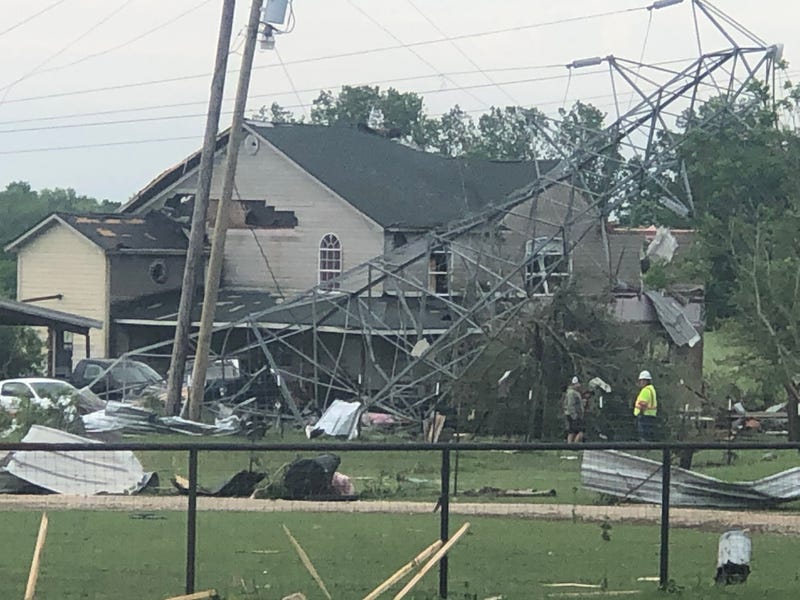
Two dozen emergency managers from 15 states are meeting in Washington D.C. this week to talk about how to improve disaster response. The meeting of the National Association of Counties' Intergovernmental Disaster Reform Task Force urged Congress to pass the "FEMA Act."
The name is short for "Fixing Emergency Management for Americans Act." The measure was passed 57-3 in the U.S. House Transportation and Infrastructure Committee.
Among those attending is Wise County Emergency Management Coordinator Cody Powell.
"It doesn't matter where you live, the disaster, the hazard that might impact your community doesn't care about your boundaries. It doesn't care who you voted for in the last election or whose signs you have in your yard," he says.
Powell says the FEMA Act would simplify applications for government assistance after a disaster.
"Those who have been impacted by a disaster often find themselves caught up in bureaucratic red tape and having to fill out paperwork," he says. "That paperwork has the same information over and over and over again."
He says a universal disaster application could be spread among different government agencies to reduce duplication, confusion and delays.
The measure would also change the system from reimbursements for costs connected to disaster recovery to a model focused on grants. Powell says that would help local governments restore infrastructure more quickly.
"What you see as part of the news cycle is typically the response phase," he says. "What is very detrimental to a lot of communities is the recovery because that can take years and years."
The National Association of Counties says the bill would also allow for the interest from loans to be covered by FEMA public assistance. The bill would also set up a dashboard where people or local governments could look at the status of projects and money that is being allocated.
"It really adds accountability," Powell says. "Not only citizens but local jurisdictions would be able to go to that dashboard and be able to see exactly where things are in the process."
In 2023, the National Association of Counties says 1,027 counties across the United States experienced at least one federally declared disaster. The organization says 27 disasters caused at least $1 billion in damage, totaling $182.7 billion.
"That just goes to show you how a disaster doesn't care where you live. It doesn't care who you voted for. It impacts everyone," Powell says.
Despite the government shutdown, Powell says the task force is still meeting with lawmakers in Washington D.C. He says lawmakers from both parties have been receptive to the importance of the need to hear the message, and the task force includes members of both parties.
"We are all on the same side presenting solutions that impact counties all across the nation," he says.
